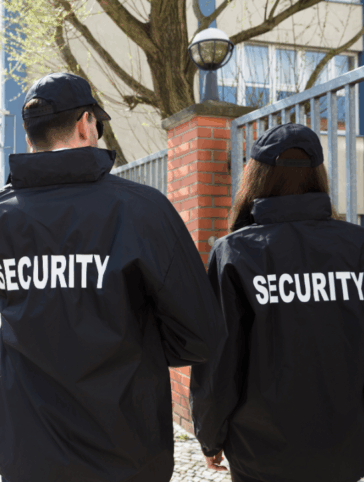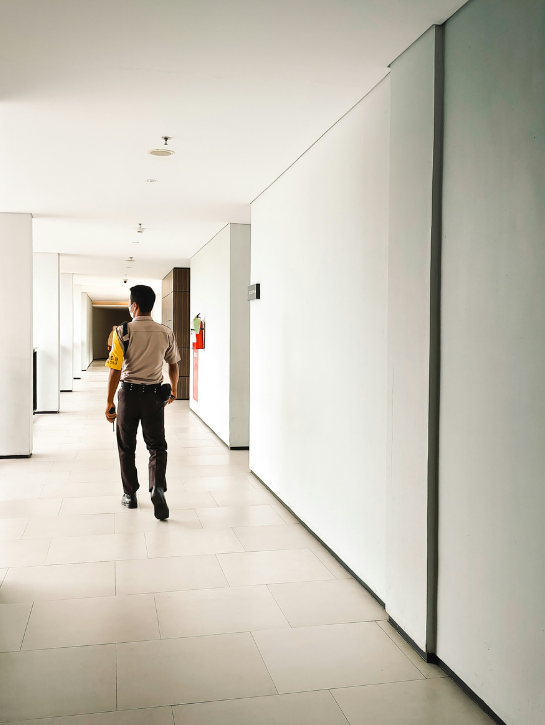Security work isn’t just physically demanding – it’s also emotionally demanding. Security workers often encounter high-pressure and tense situations. They may also be exposed to traumatic events and threats. Security guard mental wellness is a serious issue that can impact job performance and workers’ compensation claims.
Security Guards Are Often in Harm’s Way
Businesses rely on security guards to protect their property and to keep their workers and customers safe, but security guards are often put in harm’s way in the process.
As crime increases so do risks. According to KOMO News, more businesses in downtown Seattle are hiring private security in response to rising crime. The owner of one security firm in the area estimates that calls requesting security have increased by about 50%.
Security guards can help deter crime and make areas safer, but sometimes they become targets. KIRO 7 says a woman attacked a security guard with a machete in Seattle, leaving two five-inch cuts on his forearm. In another incident, Fox 13 News says a security guard was shot four times. Witnesses say that, when the security guard tried to stop a person throwing rocks at a bank window, the suspect started shooting. These incidents aren’t limited to Seattle, either – Fox News says a suspected shoplifter shot a Safeway security guard in San Francisco.
Threats Take a Mental Toll
The stress of security work can impact physical and mental health. According to the Mayo Clinic, stress can impact a person’s body, mood, and behavior. For example, a person experiencing high levels of stress can suffer from headaches, sleep problems, an upset stomach, irritability, anxiety, depression, and alcohol misuse. Stress has also been linked to high blood pressure, heart disease, obesity, and diabetes.
The nature of security work alone may lead to high levels of stress. If a security guard experiences a traumatic event (such as an assault), the consequences may be even more severe.
Medline Plus says some people develop post-traumatic stress disorder (PTSD) after experiencing a traumatic event. People with PTSD may have flashbacks and nightmares and may be easily startled or have difficulty sleeping. In most cases, symptoms start soon after the traumatic event. However, there is sometimes a delay, and symptoms may come and go.
Mental Health Injuries May Qualify for Workers’ Compensation
Security guards who are physically injured in the course of work are generally eligible for workers’ compensation. Although certain circumstances can make workers ineligible – for example, if they were intoxicated or roughhousing when they were injured – compensation typically covers physical injuries.
Mental injuries are more complicated, but workers who experience mental injuries as a clear and direct consequence of their work duties may be eligible for workers’ compensation. Whether a claim is successful will depend on a variety of factors, including the state rules and the nature of the mental injury. Proving a violent event caused PTSD might be easier than proving the general day-to-day stress of the job caused mental harm.
Workers may have an easier time filing claims for mental injuries in the near future. According to Business Insurance, close to a dozen states have introduced legislation to expand or enhance workers’ compensation benefits for mental injuries by presuming work situations caused the injuries.
Stress Can Also Impact Job Performance and Turnover
Even when a security guard is unable file a successful workers’ compensation claim, mental injuries can have a significant impact on work.
For example, security guards experiencing stress or trauma may have trouble sleeping, which can impact their work performance. They may also be irritable and jumpy, which could possibly contribute to conflict at work. Some security guards may decide to leave due to stress and trauma, leading to high turnover and associated costs.
Employers Can Support Security Guard Mental Health
Security work is stressful, but employers can help by supporting mental wellness.
- Train security guards on how to handle and deescalate tense situations.
- Take steps to keep security guards safe. Your security guards are there to keep others safe, but their safety matters, too. Determine what safety measures are necessary, such as security cameras, lights, and additional guards.
- Provide mental health support. Health insurance that includes mental health benefits can help security guards find the support they need. Also consider additional benefits, such as access to telehealth therapy or meditation sessions.
- Give workers time to destress. If your workers are stressed, they may need a mental health day. Longer vacations can also help security guards destress, allowing them to return to work with more energy and a healthier outlook.
In addition to policies that support security guard mental wellness, you need a strong workers’ compensation program. Tangram provides workers’ compensation coverage designed for the security industry.
If rates on your P&C business owners package have escalated, you may be able to offset those added expenses with a more tailored workers’ compensation program. We work with a boutique managing general underwriter who is able build creative solutions and our program is available nationally. Learn more.




